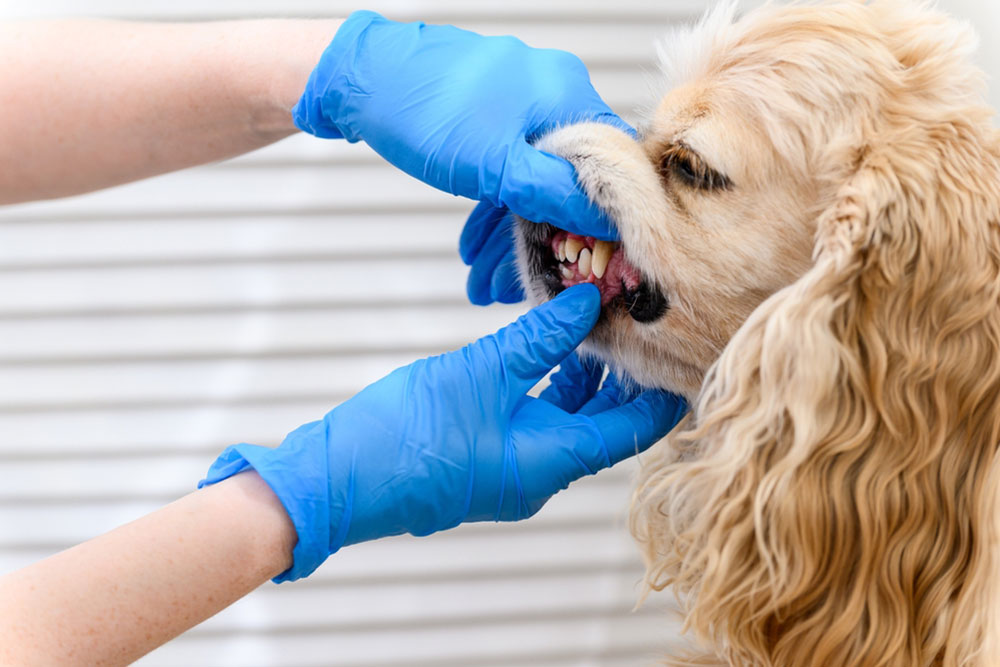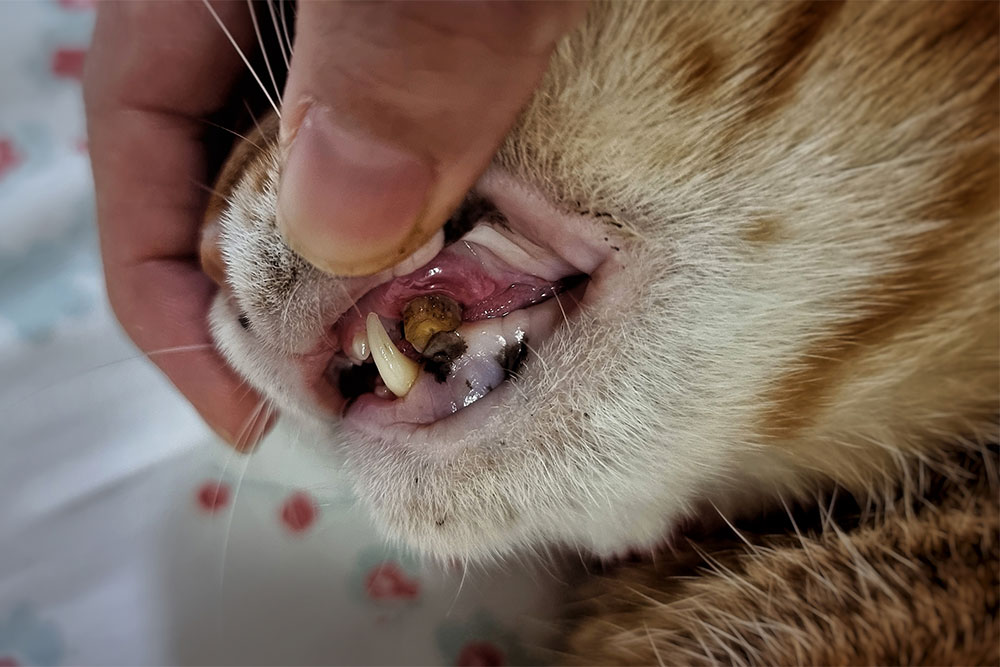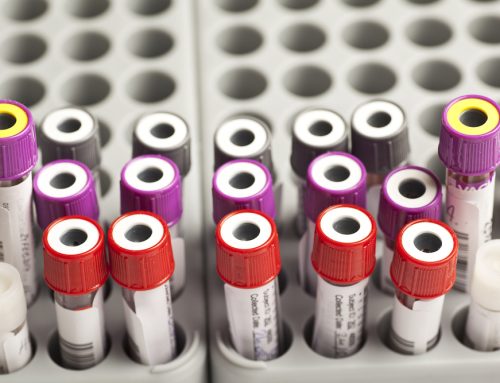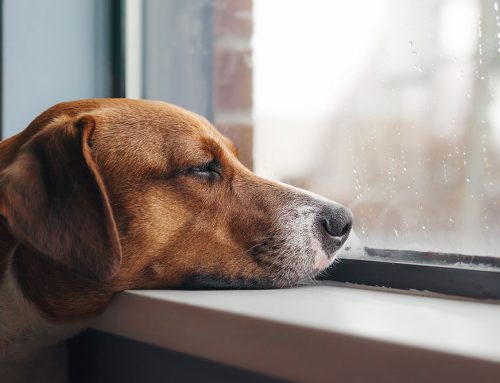Dental Health for Dogs and Cats: Why Routine Care Matters More Than You Think
At Caldwell Animal Hospital in Lenoir, North Carolina, many pet owners ask the same question: Does dental care really matter that much? The short answer is absolutely, yes. Oral health influences daily comfort, overall wellness, and even lifespan. Hidden infection below the gumline can quietly damage teeth, jawbone, and internal organs long before a pet shows obvious pain. This guide breaks down what truly happens inside a pet’s mouth, how to spot trouble early, and when professional help becomes essential.
How Dental Disease Starts
Dental disease, also called periodontal disease, begins when soft plaque hardens into tartar. That rough surface irritates the gums and sparks gingivitis. If left alone, the bacteria dive deeper, loosening tooth roots and eroding jawbone in a stage called periodontitis. Tooth loss and chronic pain follow, and bacteria can enter the bloodstream along the way.
Some pets face higher odds than others. Small breeds, flat-faced dogs, and most cats develop tartar quickly. Age also plays a role; the risk climbs steadily after the third birthday. Products carrying the Veterinary Oral Health Council seal remove plaque more efficiently and slow this cycle.
Subtle Signs of Dental Problems
Pets rarely yelp at the first sign of dental pain. Instead, they change small habits:
- Persistent bad breath even after brushing or dental treats
- Drooling or saliva that smells metallic or looks pink
- Chewing on one side of the mouth or dropping kibble
- Pawing at the face or rubbing along furniture
- Red, swollen, or bleeding gums
- Loose, broken, or missing teeth
- Swelling under an eye or along the jaw
Broken teeth often stay hidden until they abscess. A detailed discussion of fractured teeth and treatment options explains why early repair prevents deeper infection.
Consequences of Ignoring Dental Disease
Minor plaque rarely stays minor. As bacteria slip beneath the gumline:
- Tooth roots weaken, leading to painful loose teeth
- Jawbone erodes, sometimes fracturing in severe cases
- Oral bacteria travel through the bloodstream, damaging the heart, liver, and kidneys
- Chronic mouth pain reduces appetite, causing weight loss and behavior changes
What starts as faint odor or a little redness can become systemic illness if left unchecked.
Professional Cleanings and Dental X-Rays
Annual or semi-annual cleanings under anesthesia remove tartar from spots a toothbrush can’t reach. Pets cannot hold still for sub-gingival cleaning, and anesthesia keeps them pain-free while protecting the airway.
Full-mouth dental X-rays matter just as much. Images capture root abscesses, impacted teeth, and bone loss hidden below healthy-looking crowns. A clear walkthrough of why dental X-rays are needed shows how unseen problems often outnumber visible ones. Modern anesthesia protocols, outlined in the AAHA guide to safe dental cleaning, keep complications rare and recovery smooth.
Does My Pet Really Need an Extraction?
Many owners feel surprised when a veterinarian recommends pulling teeth that appear normal on the surface. Dental X-rays frequently reveal split roots, deep pockets of infection, or painful resorption lesions hidden beneath intact enamel. Removing a diseased tooth stops chronic pain, prevents bacteria from spreading to neighboring teeth, and protects the jawbone from erosion. The alternative often involves repeated antibiotics and ongoing discomfort. Pets adjust quickly after extraction, chewing comfortably within days, and most owners notice brighter moods and better appetites almost immediately.
What About Non-Anesthetic Dentals?
Scaling visible tartar while a pet is awake may seem convenient, but it leaves hidden plaque and bacteria beneath the gumline and prevents any diagnostic X-rays. Awake scraping also raises the chance of accidental mouth injury if a dog or cat moves suddenly and can create a false sense of security when deep infection remains untreated. The AAHA dental care guidelines explain that the minimal risk associated with today’s monitored anesthesia is far outweighed by the benefit of a complete, pain-free cleaning that addresses every surface above and below the gums.
Home Care That Makes a Difference
Brushing remains the gold standard. Daily use of pet-safe toothpaste removes plaque before it hardens. When brushing is impossible, dental wipes and VOHC-approved treats lessen buildup. Annual wellness exams help detect early gum redness or subtle calculus, allowing treatment before surgery or extraction becomes necessary.
Safe Chews and Treats
Hard nylon toys, hooves, antlers, and real bones scrape tartar but often fracture teeth. A simple test is whether you can dent the chew with a thumbnail. If it is too hard to indent, it is hard enough to break teeth. The AAHA handout Don’t Chew On This explains why these items break teeth more often than they clean them. Look for dental treats carrying the VOHC acceptance seal; those options clean teeth without risking cracks.
Less-Common but Serious Oral Conditions
Periodontal disease dominates the dental landscape, yet other problems deserve attention:
- Oral tumors may appear as lumps or sores that resist healing. Early removal improves outcomes, as detailed in the ACVS overview of oral tumors
- Root abscesses form around fractured or worn teeth, causing facial swelling and drainage
- Misaligned teeth trap food and create local pockets of disease, especially in flat-faced breeds
Routine exams catch these issues early, reducing treatment costs and boosting success rates.
Frequently Asked Questions
Is yearly dental cleaning worth the cost?
Yes. Preventive care saves money and discomfort by avoiding advanced surgery later.
Do dental treats replace brushing?
They assist, but nothing removes plaque as effectively as daily brushing.
Why does my pet’s breath smell bad despite premium food?
Diet alone cannot clear tartar once it hardens. Professional scaling is still necessary.

Your Partner in Pet Dental Care
Dental disease is largely preventable when professional cleanings pair with smart home routines. Caldwell Animal Hospital places comfort and safety first, guiding every family toward healthier mouths and happier pets.
Schedule a cleaning during Dental Month for a fifty-dollar savings, or contact the team anytime with questions. A cleaner mouth today supports a healthier, more energetic tomorrow.







Leave A Comment